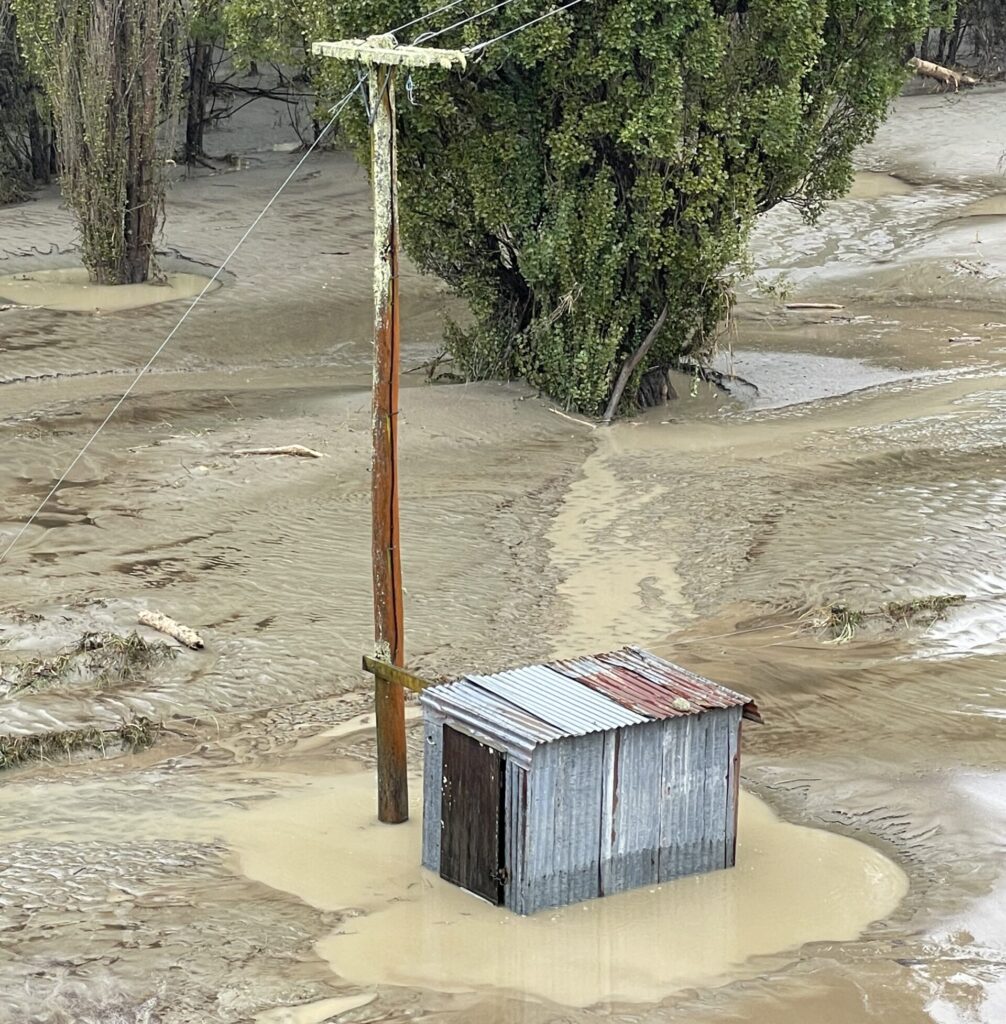When things get tough at home, heading in to work can seem like a bit of a relief. Sheep and beef farmer Tom Lane had no such luxury after Cyclone Gabrielle.
With parts of his Waiwhare farm underwater in February, Lane’s day job was just as challenging – and as general manager commercial at Rockit Apples he had much more to contend with.
“I woke up on the Tuesday morning and noticed quite a bit of water about – more than normal,” he said, recalling the day the cyclone hit, February 14.
“But I didn’t think an awful lot of it until I went out to the pump up on top of the hill.
“It looks down to the pump shed at the bottom. I remember looking down and could only just see about 15cm of the pump shed roof, which made me realise that it’s probably a bit more rain than we’d encountered in the past.”
Luckily there was no stock down there, but it took a couple of days to clear slips and make that part of the farm accessible.
“We’ve probably lost about 8km of fencing, 4km of tracks, and we’d be about roughly 40 to 60 acres [16-25ha] of land that we’re tossing up what to do with it; it’s not going to be economical.
“The steeper country is not going to be economic to refinance. But I hate pine trees with a passion so it’s a case of persuading government to do something to actually encourage you to plant natives.”
Lane said Rockit faces the same issues everyone in the broader horticulture industry is grappling with.
“We had a very disparate experience – some people had everything disappear overnight. Other people had a lot of flood damage, but we were still able to harvest above the floodline, which is good. It’s incredibly inequitable the way the damage was allocated.”
But it’s been as incredible to see the resilience, he said, “and probably also the commitment across the industry that we’ve seen”.

For Rockit, the main focus has been on fruit quality and food safety.
“Customers had some questions about New Zealand fruit. We got them into the country, got them out on orchard and showed them. ‘Yeah, it was damaged, but the majority of the orchards were entirely unaffected, and look at the quality of the fruit coming off.’ That went down really well and there was a huge amount of confidence there. Seeing the quality and seeing the way the industry has responded, that’s great.”
The next challenge is figuring out how flood-hit orchards will respond next season. While it is obvious that some orchardists will need to replant and others are untouched, those in the middle are playing a game of wait-and-see.
“There’s sort of a middle space which is really unknown. And the big challenge we’ve got is that a number of the nurseries were affected as well. So the ability to have trees available for new developments, and to replace the trees that have died, is quite a challenge.”
Just as rural communities banded together to get everyone through, Lane said, the same sense of community is evident in the business world.
“The industry is really great. At a processing level we’re working with TnG. There’s quite a bit of labour sharing around harvest, even at post-harvest level and people are really working to cover gaps. So it’s good to see New Zealand working together.”






